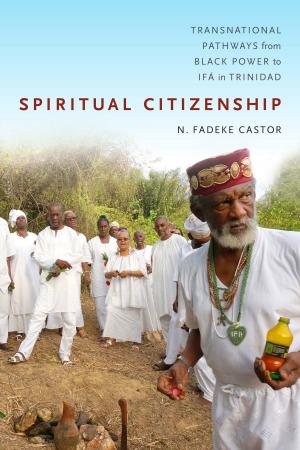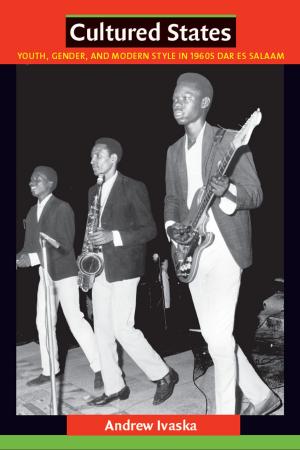Sound of Africa!
Making Music Zulu in a South African Studio
Nonfiction, Entertainment, Music, Pop & Rock, Popular, Music Styles| Author: | Louise Meintjes | ISBN: | 9780822384632 |
| Publisher: | Duke University Press | Publication: | February 5, 2003 |
| Imprint: | Duke University Press Books | Language: | English |
| Author: | Louise Meintjes |
| ISBN: | 9780822384632 |
| Publisher: | Duke University Press |
| Publication: | February 5, 2003 |
| Imprint: | Duke University Press Books |
| Language: | English |
Boosting the bass guitar, blending the vocals, overdubbing percussion while fretting over shoot-outs in the street. Grumbling about a producer, teasing a white engineer, challenging an artist to feel his African beat. Sound of Africa! is a riveting account of the production of a mbaqanga album in a state-of-the-art recording studio in Johannesburg. Made popular internationally by Mahlathini and the Mahotella Queens, mbaqanga's distinctive style features a bass solo voice and soaring harmonies of a female frontline over electric guitar, bass, keyboard, and drumset. Louise Meintjes chronicles the recording and mixing of an album by Izintombi Zesimanje, historically the rival group of the Mahotella Queens. Set in the early 1990s during South Africa’s tumultuous transition from apartheid to democratic rule, Sound of Africa! offers a rare portrait of the music recording process. It tracks the nuanced interplay among South African state controls, the music industry's transnational drive, and the mbaqanga artists' struggles for political, professional, and personal voice.
Focusing on the ways artists, producers, and sound engineers collaborate in the studio control room, Meintjes reveals not only how particular mbaqanga sounds are shaped technically, but also how egos and artistic sensibilities and race and ethnicity influence the mix. She analyzes how the turbulent identity politics surrounding Zulu ethnic nationalism impacted mbaqanga artists' decisions in and out of the studio. Conversely, she explores how the global consumption of Afropop and African images fed back into mbaqanga during the recording process. Meintjes is especially attentive to the ways the emotive qualities of timbre (sound quality or tone color) forge complex connections between aesthetic practices and political ideology. Vivid photos by the internationally renowned photographer TJ Lemon further dramatize Meintjes’ ethnography.
Boosting the bass guitar, blending the vocals, overdubbing percussion while fretting over shoot-outs in the street. Grumbling about a producer, teasing a white engineer, challenging an artist to feel his African beat. Sound of Africa! is a riveting account of the production of a mbaqanga album in a state-of-the-art recording studio in Johannesburg. Made popular internationally by Mahlathini and the Mahotella Queens, mbaqanga's distinctive style features a bass solo voice and soaring harmonies of a female frontline over electric guitar, bass, keyboard, and drumset. Louise Meintjes chronicles the recording and mixing of an album by Izintombi Zesimanje, historically the rival group of the Mahotella Queens. Set in the early 1990s during South Africa’s tumultuous transition from apartheid to democratic rule, Sound of Africa! offers a rare portrait of the music recording process. It tracks the nuanced interplay among South African state controls, the music industry's transnational drive, and the mbaqanga artists' struggles for political, professional, and personal voice.
Focusing on the ways artists, producers, and sound engineers collaborate in the studio control room, Meintjes reveals not only how particular mbaqanga sounds are shaped technically, but also how egos and artistic sensibilities and race and ethnicity influence the mix. She analyzes how the turbulent identity politics surrounding Zulu ethnic nationalism impacted mbaqanga artists' decisions in and out of the studio. Conversely, she explores how the global consumption of Afropop and African images fed back into mbaqanga during the recording process. Meintjes is especially attentive to the ways the emotive qualities of timbre (sound quality or tone color) forge complex connections between aesthetic practices and political ideology. Vivid photos by the internationally renowned photographer TJ Lemon further dramatize Meintjes’ ethnography.















